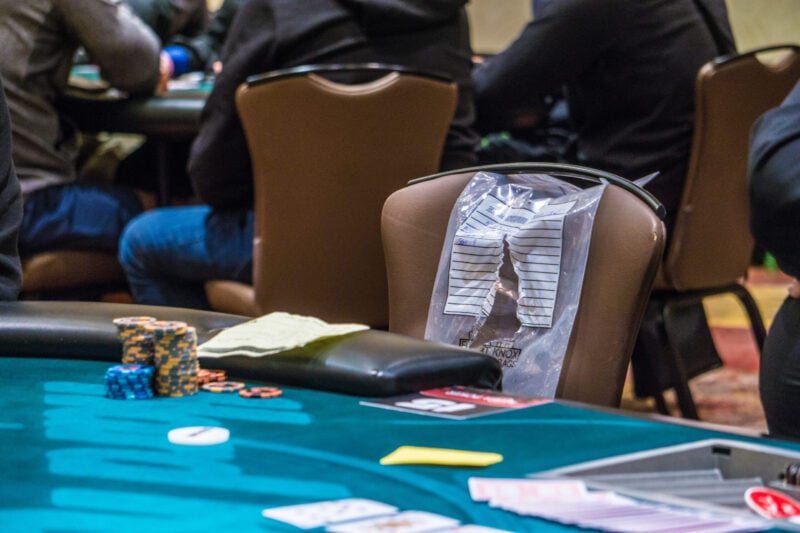A Syracuse, New York man has again been found guilty of attempted first-degree murder in a retrial of a near-fatal shooting at an underground poker game nearly six years ago. Since then, the victim and three witnesses have all died of natural or unrelated causes, but the jury still heard their testimony after an appeals court threw out an initial conviction and ordered the retrial due to courtroom errors.

Charquan Edwards, 29, was convicted of first-degree attempted murder in 2015 for a shooting that occurred during a poker game earlier that year. Edwards. then 23, supposedly had lost thousands of dollars in a game frequented by older men. Prosecutors said that he shot the victim, 83-year-old George Smith at point-blank range, but somehow Smith survived.
Edwards opened fire while attempting to steal about $9,000 spread across the game’s table. Edwards had lost consistently during the hours-long game, and he twice took a break to get more money with which to gamble.
After busting a third time, Edwards again claimed he was headed home to get more money, but instead pulled a gun and fired twice into the ceiling. According to court documents and testimony, a scuffle ensued. Accounts differ on whether what happened next was intentional or by accident, but Edwards shot Smith twice before fleeing the scene. That flight was also captured by a security camera.
Smith recovered from the shooting but died in 2020 at age 89 of unrelated causes. Three of the other four witnesses in the case have passed on as well, while the sole surviving witness is hospitalized and was not be able to re-testify.
Courtroom misdeal led to retrial
Edwards won a retrial when an appellate court agreed that he was denied due process in his original trial, specifically, because of the failure of his court-appointed attorney to properly file omnibus motions for dismissal, plus the presiding judge’s coinciding (but mistaken) belief that those motions had indeed been filed.
Omnibus motions are often related to discovery and are often used in an attempt to suppress incriminating evidence. While convicted criminals often file claims of inadequate representation, an appeals court agreed with Edwards’ claim that he hadn’t received due process because of failures from his court-appointed attorney.
The appellate court also ruled that the omission was accidental, not intentional. That court’s order to retry also noted that presiding Supreme Court Judge John Brunetti had “fail[ed] to make a minimal inquiry regarding (Edwards’) serious complaint.”
The appellate court noted, “At a pretrial appearance, defendant requested that the court assign him new counsel because, among other things, defense counsel had failed to file discovery demands and omnibus motions.”
Local reports state that Edwards complained during the trial about the oversights, but those complaints went unheeded. The appellate ruling did not suggest that any form of legal misconduct occurred, instead blaming it on genuine errors by both the attorney and the judge.
Edwards faces 20 years to life
Edwards received the same 20-to-life sentence today that he received at his initial trial in 2015, though that was less than the 25-to-life sentence he faced had Smith died of his wounds. Edwards steadfastly maintained at his initial trial that the gun went off during a struggle and that his intent had been to scare Smith and the others while taking the money, not to actually shoot him. Such claims actually matter little in the eyes of the law.
The retrial also included other oddities, including the sight of deceased peoples’ taped testimony being reintroduced. Dead people’s testimony has been allowed in American courts since at least the 19th century, but there is no ready information as to how frequently it occurs. Here, the ages of Smith and (likely) of the game’s other players increased the likelihood that some of them would die of natural causes between the original and second trials, though four out of five passing on was unusual by itself.
Last year, during the retrial’s early proceedings, Edwards was allowed to tour the private home where the shooting occurred under revamped New York State trial policies put into place a few years ago. These policies have met with strenuous objections from law enforcement agencies and civil rights groups, who claim such tours violate victims’ rights to privacy.
One concern — though not a high factor in this proceeding — was that allowing accused criminals such tours also allows them the chance to gain additional information about their victims and their families, should later revenge become a motivation for further criminal behavior.


